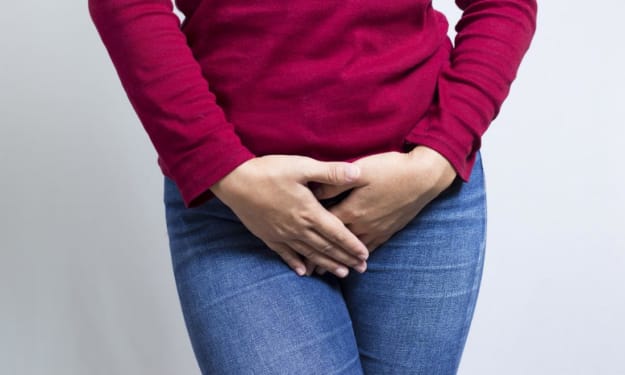What Is Known About Sexual Dysfunction After Breast Cancer
Female sexual health after breast cancer

For breast cancer survivors, the battle isn’t always over when treatment ends. Many women face ongoing challenges with sexual side effects that can last for years. In fact, more than half of all breast cancer survivors report severe sexual side effects that negatively impact their quality of life.
Sexual dysfunction after breast cancer is a real and serious problem that often goes unaddressed. Nausea, hair loss, weight gain from chemotherapy; discomfort and physical changes from surgery; and postmenopausal symptoms and mood changes from endocrine therapy can all take a toll on a woman’s sexuality and body image. These challenges can present themselves during treatment and continue long after survivorship.
The Link Between Breast Cancer And Sexual Dysfunction
Breast cancer treatment can lead to sexual dysfunction in a few different ways.
- Cancer and its treatments can often cause problems with sexual function. Some of the most common causes of sexual dysfunction after breast cancer include:
- Cancer treatments such as surgery, radiation therapy, and chemotherapy can damage or remove sexual organs or disrupt hormones needed for sexual function.
- Cancer can cause fatigue, pain, and other symptoms that make sex less enjoyable.
- For one, treatment can cause physical changes that make sex painful or difficult. For example, surgery can lead to scarring, while radiation therapy can damage sensitive tissues.
- Chemotherapy can also cause vaginal dryness by damaging the cells that produce lubrication.
- In addition, hormone therapy drugs like Tamoxifen can interfere with estrogen production, which can lead to vaginal dryness and thinning of the vaginal walls.
- Psychological factors such as anxiety, depression, and stress can also contribute to sexual dysfunction.
The Impact Of Sexual Side Effects
Breast cancer and its treatments can have a profound impact on sexuality. The physical changes resulting from surgery, menopause, and chemotherapy can make sex painful or uncomfortable. Changes in body image can lead to difficulties with self-esteem and intimacy. And the stress of a cancer diagnosis can wreak havoc on sexual desire. Any one of these factors—and often
combination of them—can contribute to sexual dysfunction after breast cancer.
One study found that nearly 60% of respondents reported experiencing at least one moderate to severe sexual problem.
These problems included difficulties with
- Sexual desire
- Arousal
- Orgasm
- Pain during intercourse.
For many women, these issues led to relationship problems and feelings of isolation and grief.
Another study found that nearly 80% of sexually active breast cancer survivors experienced some type of sexual dysfunction. The most common problems were lack of interest in sex (51%), vaginal dryness (49%), anxiety about performance (33%), and difficulty achieving orgasm (28%). These issues often persisted for years after treatment ended.
Common Type Of Sexual Dysfunction Experienced By Breast Cancer Survivors
The most common type of sexual dysfunction experienced by breast cancer survivors is lower libido or decreased sex drive. This can be caused by a variety of factors, including
- Fatigue
- Pain
- Anxiety
- Depression
- Certain medications.
Treatment-related changes to the body can also play a role, such as surgery that removes or damages breasts or reproductive organs or radiation therapy that causes inflammation in the vaginal area.
In addition to lowered libido, many breast cancer survivors also experience difficulties with arousal and orgasm. These issues can be physical or psychological in nature.
Physical causes may include pain, fatigue, hormonal changes, or medications used to treat breast cancer.
Psychological causes may include anxiety, depression, or body image issues.
Symptoms Of Sexual Dysfunction After Breast Cancer
The most common symptoms of sexual dysfunction after breast cancer include:
- Pain during sex
- Difficulty lubricating
- Loss of sensation in the breasts or nipples
- Difficulty achieving orgasm
- Loss of interest in sex
Managing Sexual Dysfunction After Breast Cancer
There are many ways to manage sexual side effects after breast cancer. If you're experiencing pain during sex, using a vaginal moisturizer or lubricant can help.
If hot flashes or night sweats are interfering with your sex life, talk to your doctor about hormone therapy options.
And if body image changes affect your self-esteem, consider talking with a therapist specializing in body image issues.
Ultimately, there is no "right" way to deal with sexual side effects after breast cancer; what's most important is finding whatever works best for you.
Treatment For Sexual Dysfunction After Breast Cancer
Treatment for sexual dysfunction after breast cancer depends on the underlying cause. Some possible treatments include:
- Counseling or psychotherapy to address psychological issues that may be contributing to the problem.
- Hormone therapy to restore hormone levels if they have been disrupted by cancer treatment.
- Surgery to repair damage caused by cancer treatment.
- Changed position during sex, use of lubricants, or other measures to make sex more comfortable.
Seeking Help For Sexual Dysfunction
Unfortunately, sexual side effects are often not discussed openly or addressed by healthcare providers. A study of more than 1,000 breast cancer patients found that only 18% had ever discussed sexual side effects with their doctor. This is likely due to a variety of factors, including embarrassment, fear, and the belief that sexual problems are a normal part of aging or treatment-related side effects. However, it’s important for women to know that help is available and these problems can be managed with proper treatment.
Harbor Compounding Pharmacy is pleased to offer hormone replacement therapy (HRT) for the treatment of sexual dysfunction.
HRT can be an effective treatment for a variety of sexual problems, including low libido, vaginal dryness, and pain during intercourse. Harbor compounding pharmacists can work with your healthcare provider to develop a custom HRT plan that meets your unique needs. If you are experiencing sexual side effects, don’t suffer in silence—talk to your healthcare provider about HRT today.
About the Creator
Harbor Compounding pharmacy
Harbor Compounding Pharmacy in California to provide better health solutions. The aim of this health pharmacy is to provide solutions to all health-related issues. It provides treatment for all diseases and health counseling.






Comments
There are no comments for this story
Be the first to respond and start the conversation.